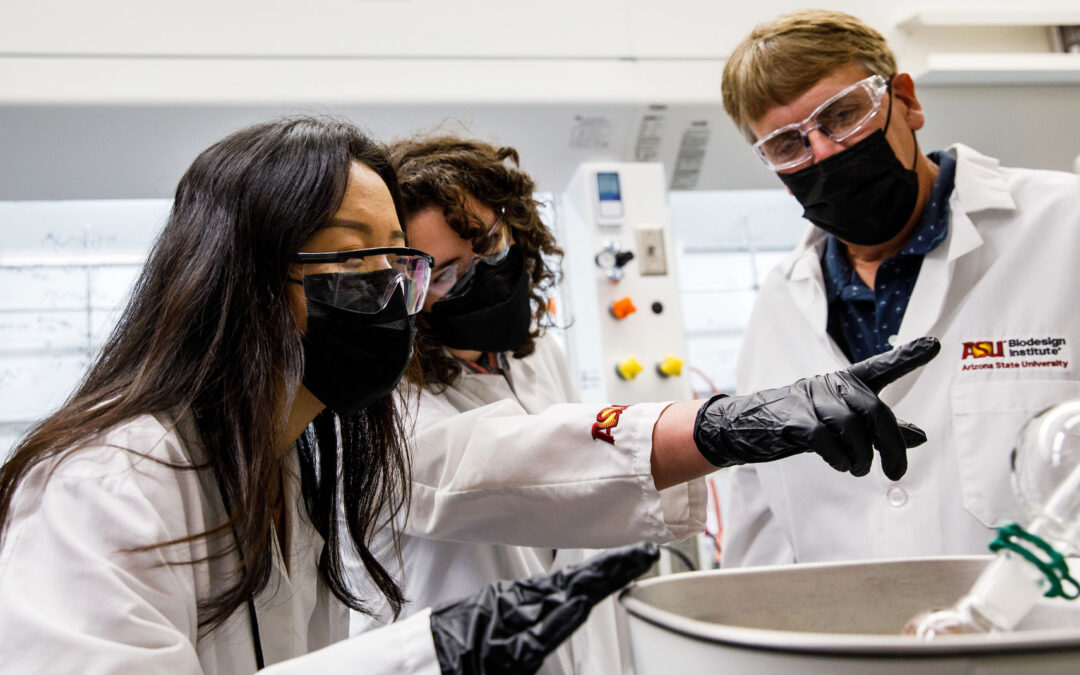Since the 1950s, plastics have changed our lives. But these amazing materials are mostly made of fossil hydrocarbons like oil, gas and coal — and none are biodegradable. So, the vast majority of the 18 trillion pounds of plastic ever produced is now trash in landfills and oceans.
While plastic recycling efforts began in the 1980s in the United States, as of 2018, the overall domestic rate of plastics recycling is only 8.7%.
“Sustainability of plastics remains a huge challenge; it’s a looming national and global crisis,” says Timothy Long, a professor in the Ira A. Fulton Schools of Engineering and the School of Molecular Sciences at Arizona State University. “It’s coming to the forefront now for people to address. There is a sense of urgency now.”
One way to reduce the challenge of plastic waste is to introduce circularity: the notion that everything created is returned to the manufacturing system with nothing sent to the landfill.
